[Linea]
Linea proposes a collaborative network connecting local industries, materials, knowledge, and culture as an alternative way of producing goods in the region of Charente in Southwestern France.
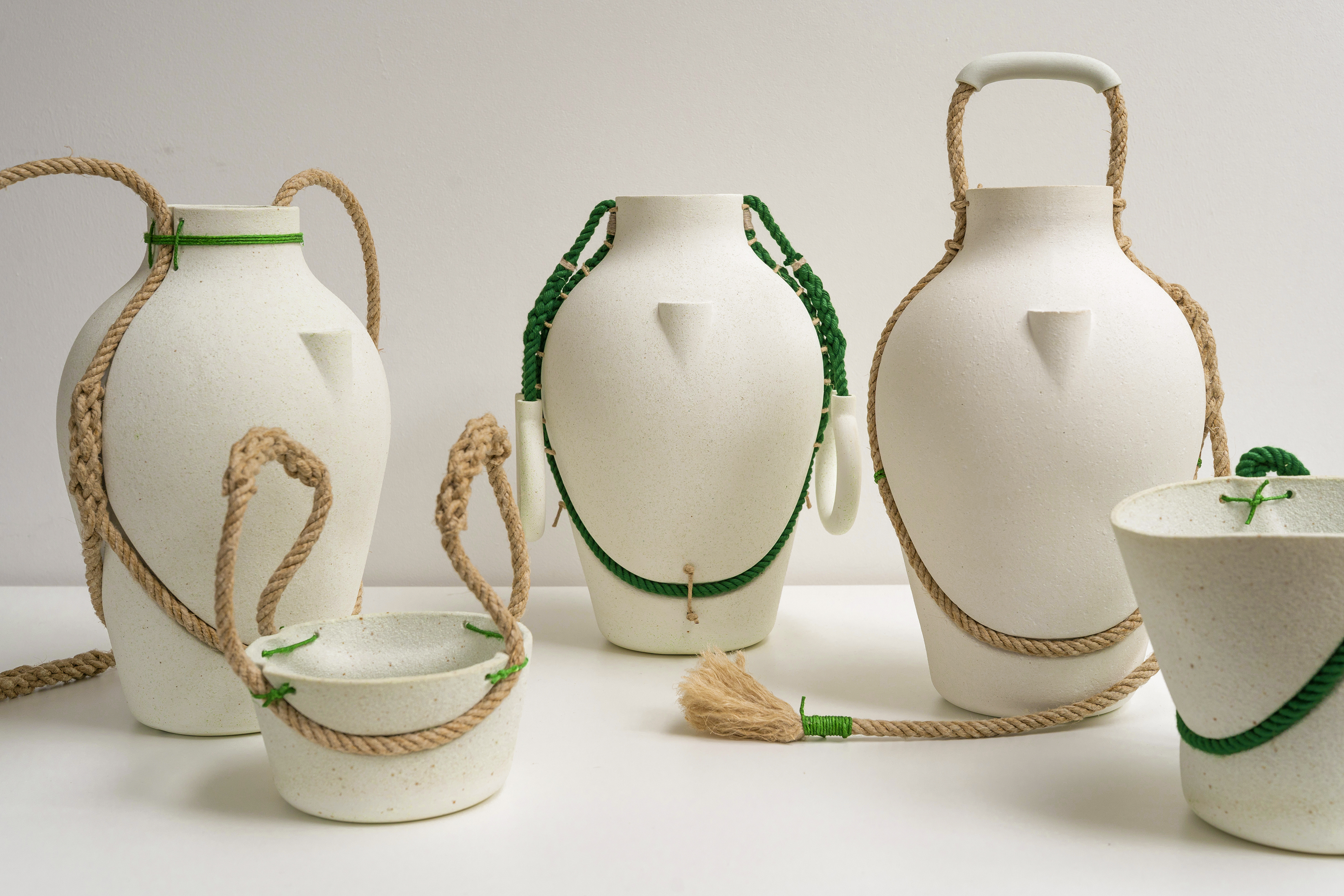
Rich with fertile soils and quarries, the region has thrived through mastering crafts for the production of consumer goods, making trade and industrial manufacturing an integral part of the region’s identity. However, current production models rely on continuous extractions of valuable natural resources, complex globalized supply chains, and industrial standards that obscure traditional know-how—contributing to the growing instability of global ecological and social systems.
Linea reimagines the production of goods as a process of collective effort—outlining a scenario in which traditional rope-making, the renowned Limoges porcelain, and the oyster industry of Charente-Maritime are deeply intertwined. Through a series of objects, the project envisions a process where different local actors form an alliance, creating new paradigms for production and aesthetic cultures that align with the material and social environments of the region. For the collection, Studio Noff developed a new porcelain composition with 50% oyster shell ash, repurposing the region's abundant shell waste while reducing the reliance on extracted minerals.
Linea reimagines the production of goods as a process of collective effort—outlining a scenario in which traditional rope-making, the renowned Limoges porcelain, and the oyster industry of Charente-Maritime are deeply intertwined. Through a series of objects, the project envisions a process where different local actors form an alliance, creating new paradigms for production and aesthetic cultures that align with the material and social environments of the region. For the collection, Studio Noff developed a new porcelain composition with 50% oyster shell ash, repurposing the region's abundant shell waste while reducing the reliance on extracted minerals.
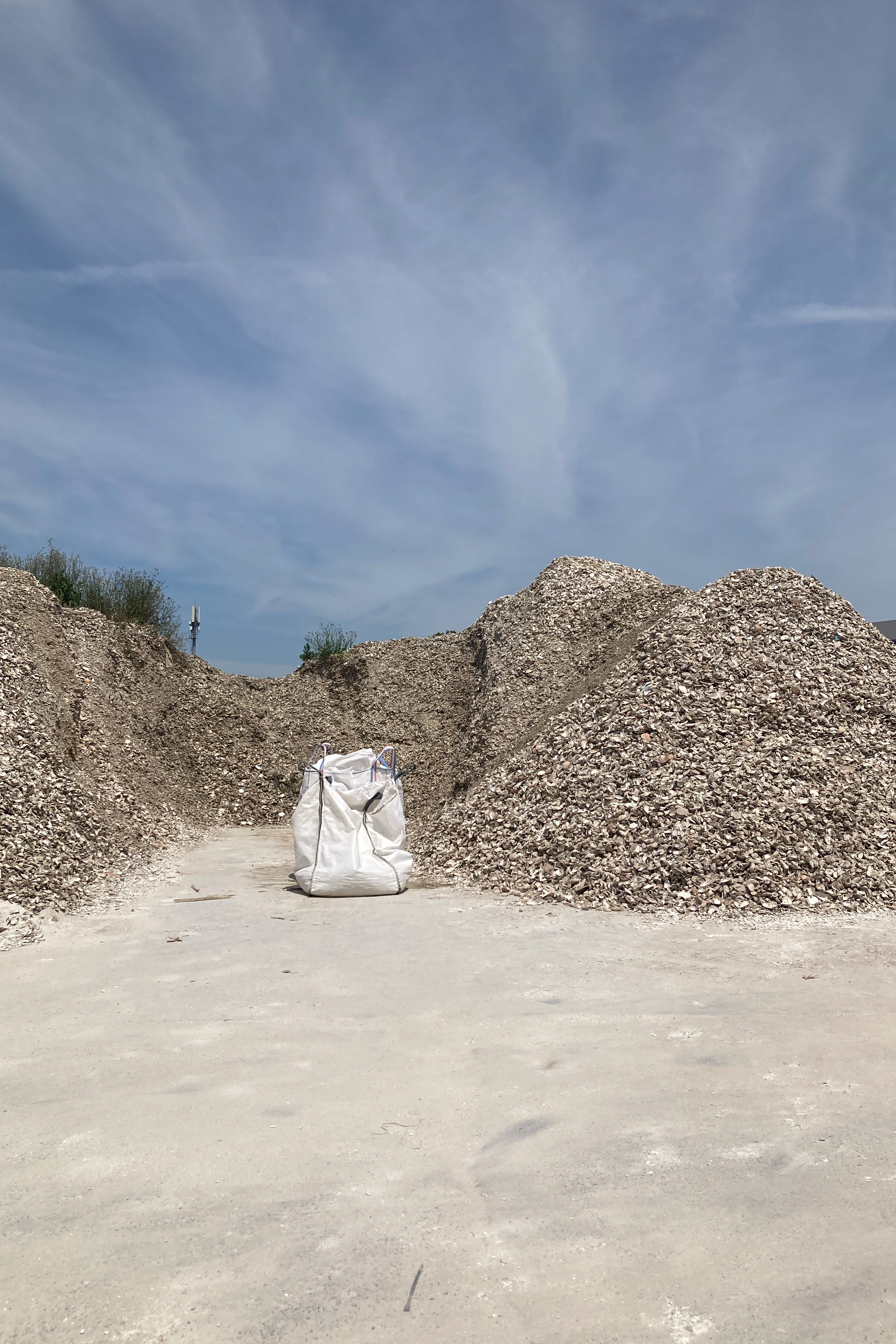
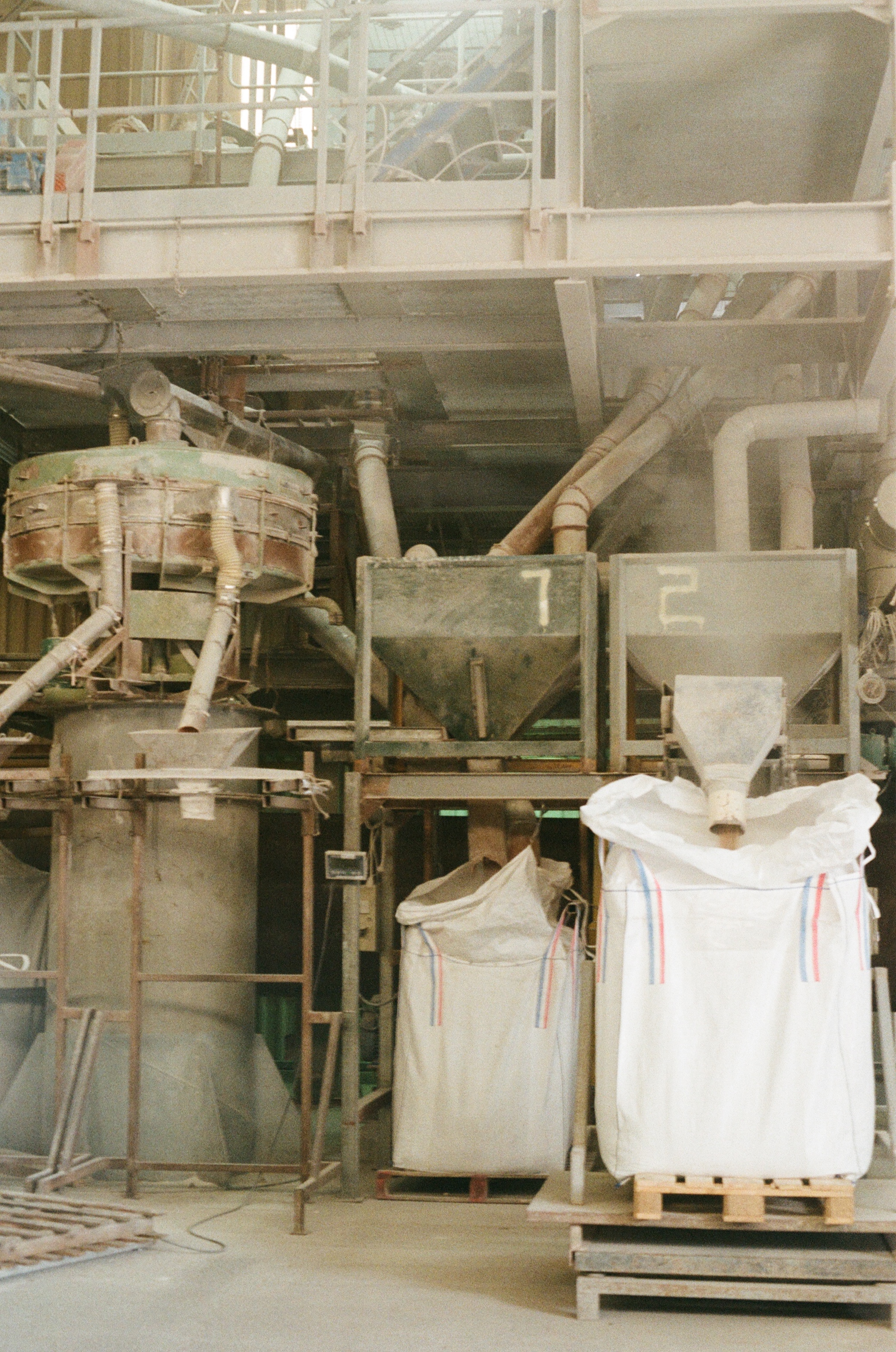
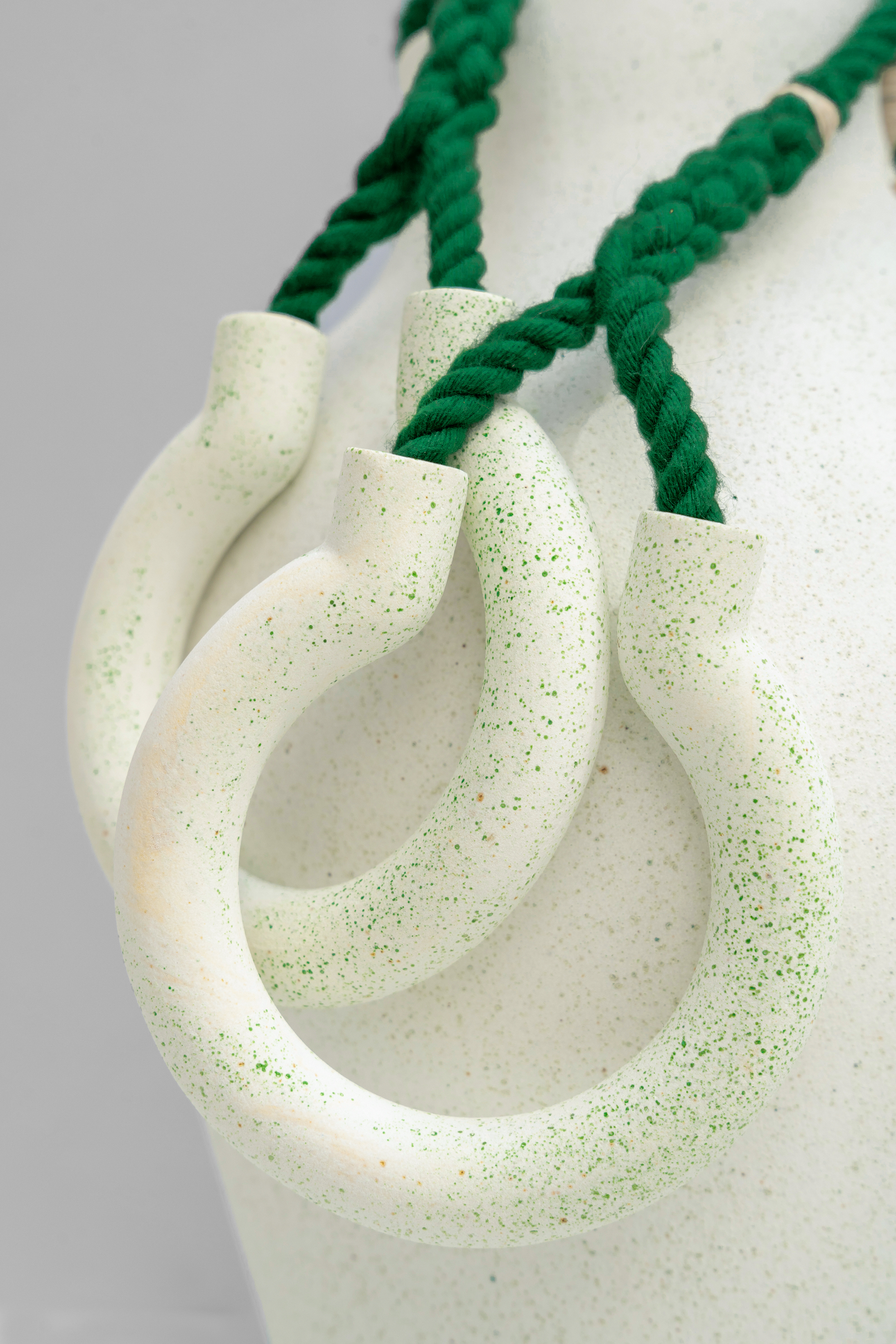
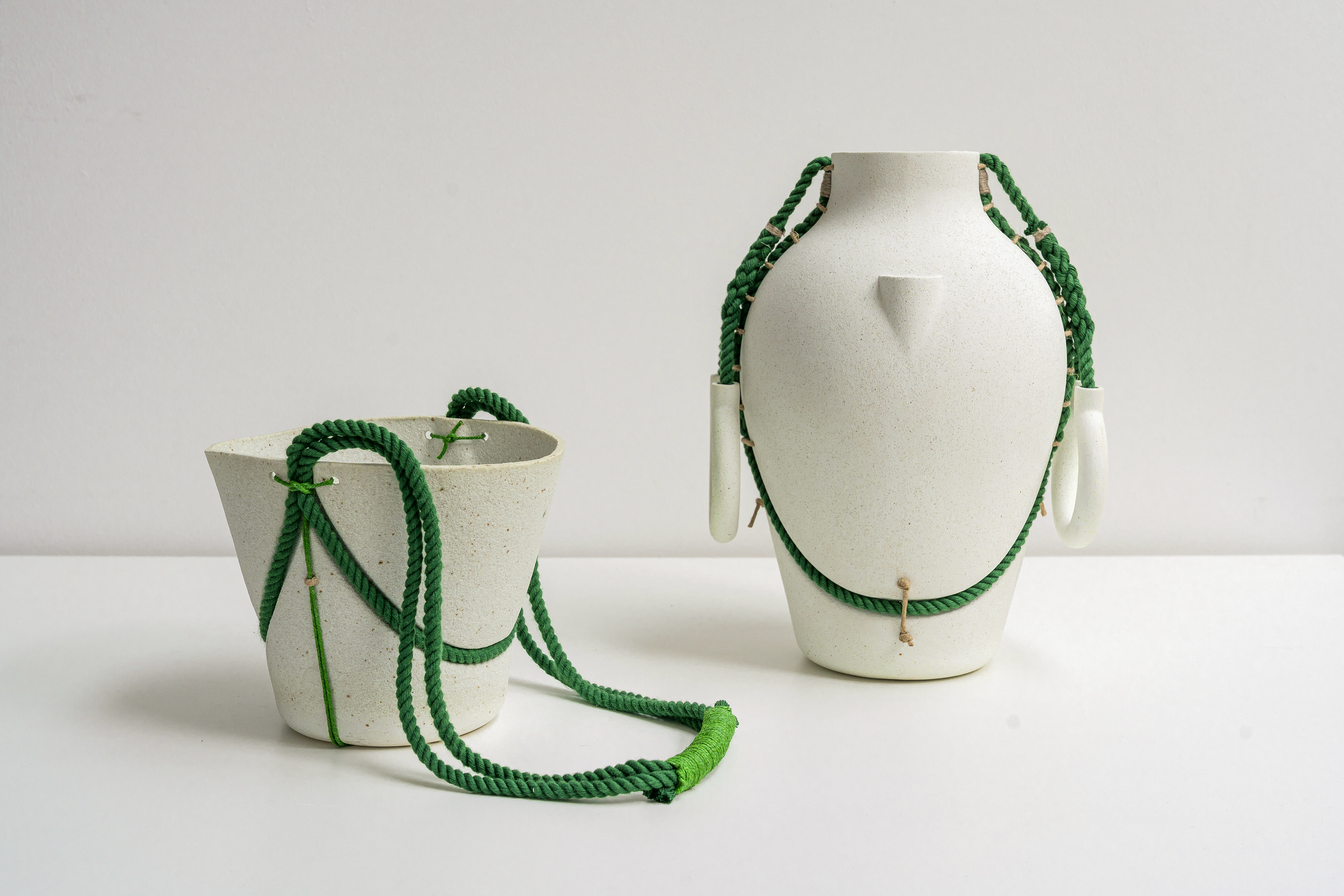
The shapes are inspired by historic ceramic forms from La Chapelle-des-Pots, a village renowned for its long-standing ceramic traditions. Each piece integrates ropes in functional and decorative ways, paying homage to the art of knot-making while preserving the nearly forgotten craft of rope-making in Charente. Today, Corderie Palus in Saint-Pantaléon-de-Larche is the only remaining workshop for traditional ropes in France. By merging this time-honored craft with local materials and available resources, Linea strengthens the deep connections between Charente’s industries, landscapes, and communities in contemporary contexts. At the same time, the project demonstrates how historical techniques can drive meaningful innovation and adaptation in today’s material culture.
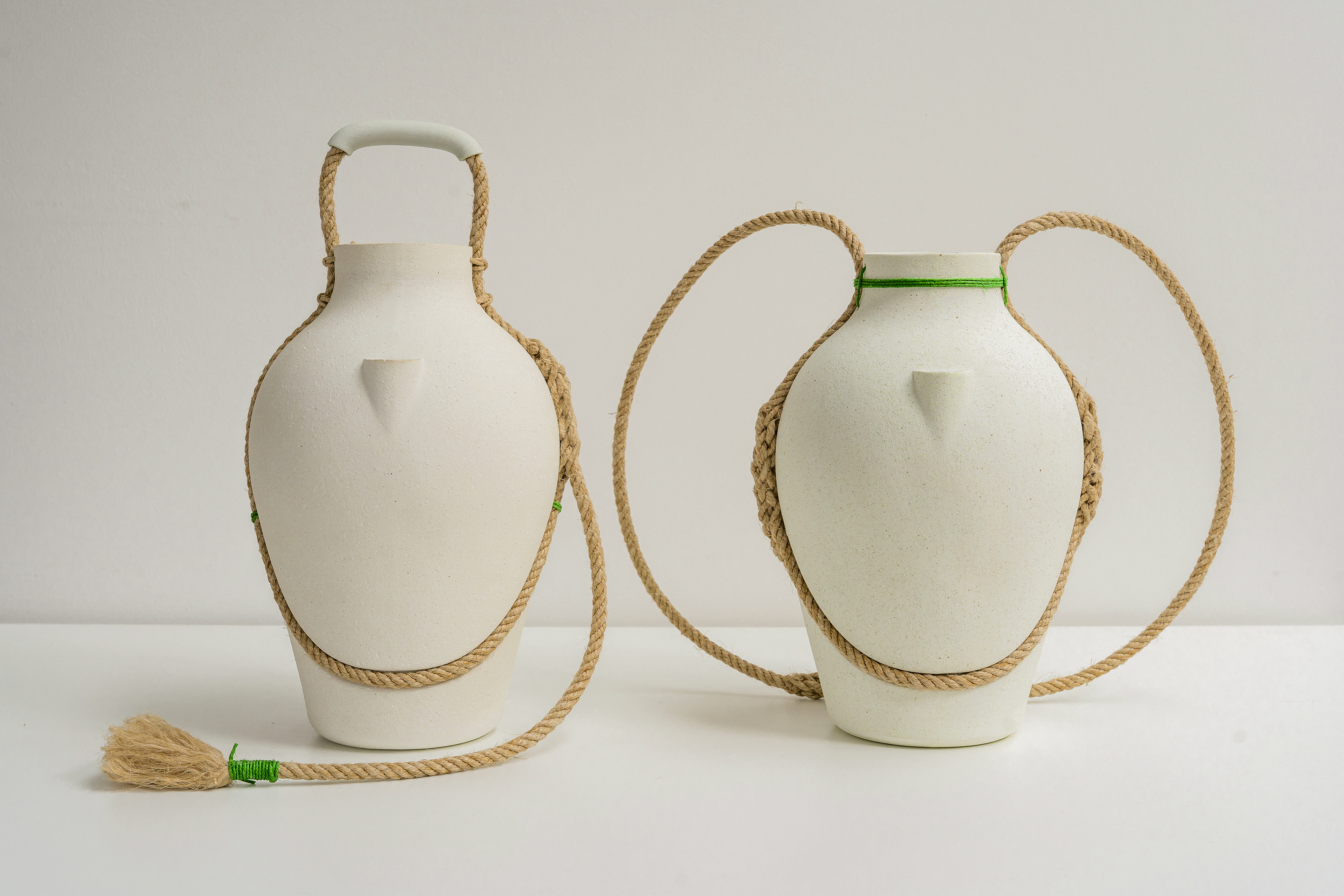


The project was supported by Fondation d’Enterprise Martell, Cognac.
Photography by Daniel Elkayam.
Photography by Daniel Elkayam.